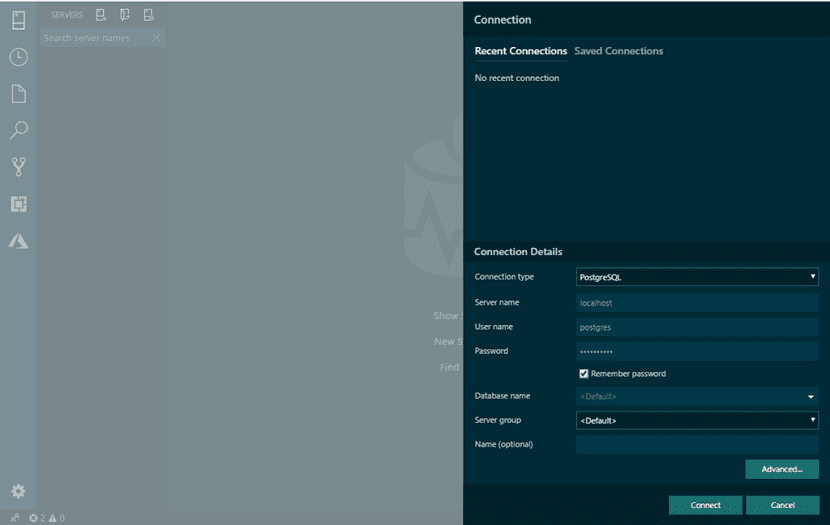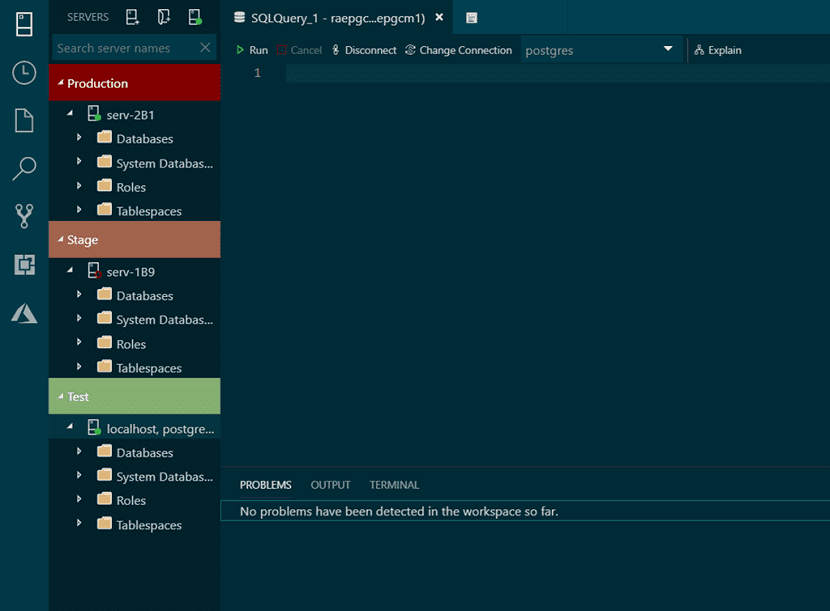
When working with a database or any other type of software, there are times when the experience is enhanced or hindered by the tools you use to interact with it.
PostgreSQL has a command line tool, psql, and it is quite powerful, but some people by far prefer a graphical editor. Although the command line is usually used, you may want to use a visual screen at times.
That's why Microsoft introduced Azure Data Studio, an open source GUI editor that supports Postgres.
Microsoft took the opportunity to also present a preview of the PostgreSQL extension corresponding in Visual Studio Code (VS Code). Azure Data Studio and VS Code are open source and extensible, two elements on which PostgreSQL is based.
About Azure Data Studio
Azure DataStudio, Microsoft's open source editor for working with SQL databases, now also supports PostgreSQL.
The integration is solved through an extension with which you can connect the editor directly to your own Postgres server. It doesn't matter if it's self-hosted, runs in a virtual machine, or as a managed instance with a cloud provider.
If multiple Postgres servers are used, you can also group them together in Azure Data Studio, which will be easily identified by giving each one a different “color”.
This is to avoid accidentally confusing the development server with the production server. A hierarchical view also allows you to easily see all the columns, indexes, triggers, and functions for each database and table.
Azure DataStudio inherits many features from VS Code. It is also compatible with most VS code extensions, such as Python, R, and Kubernetes.
Also, the editor should help them write the queries. For this, the publisher has Intellisense, Microsoft's automatic source code completion.
On the other hand the familiar snippet feature from Visual Studio Code has been integrated into the editor. There you can store frequently used SQL queries and reuse them if necessary.
Azure DataStudio is primarily aimed at data experts. Therefore, Microsoft has also developed a PostgreSQL extension for Visual Studio Code for those who use Postgres databases as application developers.
Also, it is currently still in a preview version. Therefore, both editor extensions could contain one or the other error.

If your main use case is database administration, Azure Data Studio may be a good option.
For this allows you to manage multiple database connections, explore the hierarchy of database objects, configure dashboards, and more.
On the other hand, if you are closer to application development than database administration, Microsoft offers the PostgreSQL extension in VS Code.
How to install Azure Data Studio on Ubuntu and derivatives?
For those who are interested in installing this editor on their systems, You can do so by following the instructions we share with you below.
The first thing we are going to do is download the latest stable package from the editor from the following link.
Now let's download the extension for PostgreSQL support from the link below.
Already done the downloads We must install the editor with our preferred package manager or from the terminal by typing the following command in it:
sudo dpkg -i azuredatastudio*.deb
And in case of having problems with the dependencies, we solve them by typing the following:
sudo apt -f install
Installing the PostgreSQL extension
Now to add the support extension for PostgreSQL. First we are going to open Azure Data Studio and inside we have to select the extensions icon from the sidebar in Azure Data Studio.
In the search bar, write 'postgresql'. Select the PostgreSQL extension.
Select install. Once installed, select reload to activate the extension in Azure Data Studio.